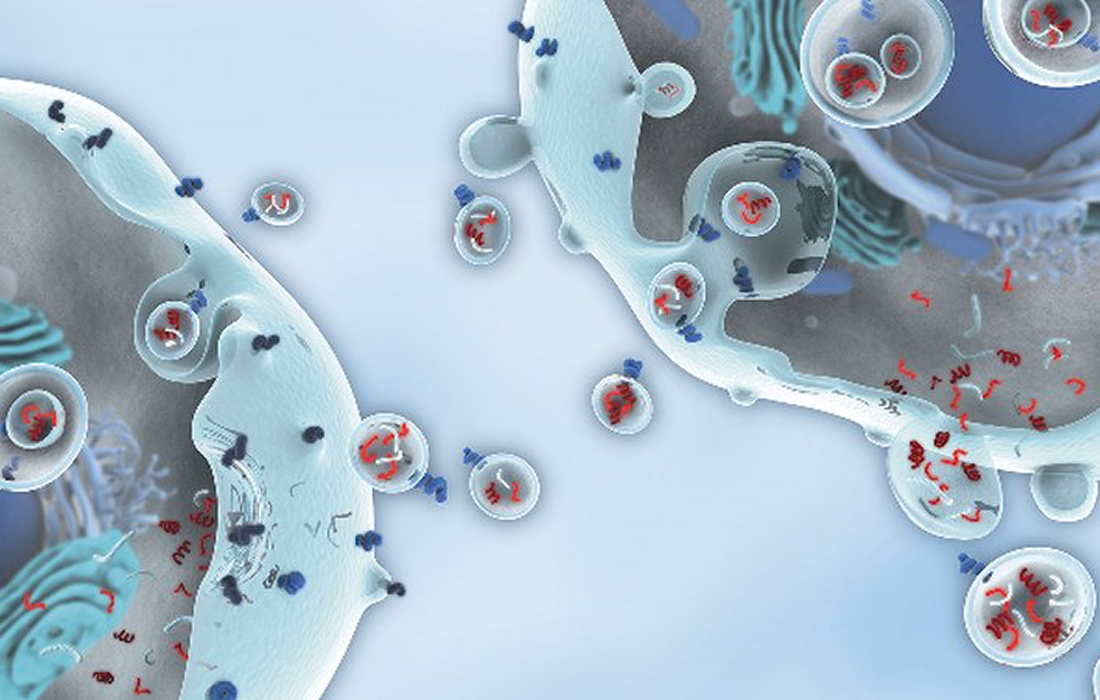Stem Cell Therapy for Specific Conditions
Mesenchymal Stem Cell Exosomes Treatment For Cardiovascular Disease
Cardiovascular disease is a major target for many experimental stem cell-based therapies and mesenchymal stem cells (MSCs) are widely used in these therapies. Experimental and clinical observations indicate that transplanted MSCs secrete factors to reduce tissue injury and/or enhance tissue repair.
Stem Cells in the Treatment of Acute Myocardial Infarction
Acute myocardial infarction (AMI) is the primary cause of disease-related death in the world. It is characterized by the disruption of blood supply to the heart muscle cells, which lead to myocardial infarction or death of cardiomyocytes. Reperfusion therapy or the restoration of blood flow by thrombolytic therapy, bypass surgery or percutaneous coronary intervention (PCI) is currently the mainstay of treatment for AMI and is responsible for the significant reduction in AMI mortality.
With the emergence of stem cells as potential therapeutic agents, attempts to use stem cells to reduce infarct size and enhance cardiac function in animal models and patients have increased exponentially.
Mummery et al. have reviewed the use of both adult and embryonic stem cells, such as bone marrow-derived stem cells, which include hematopoietic stem cells (HSCs) and mesenchymal stem cells (MSCs). transplantation of bone marrow stem cells improves some cardiac functions in animal models and patients, and this has been attributed to a paracrine effect, rather than the differentiation into cardiomyocytes and supporting cell types.
Mesenchymal Stem Cells For the Treatment of Cardiovascular Disease
MSCs are the most widely used stem cells. Part of the reason for this is their easy availability in accessible tissues, such as bone marrow aspirate,fat tissue and umbilical cord, and their large capacity for ex vivo expansion.
MSCs are also known to have immunosuppressive properties and, therefore, could be used in allogeneic transplantation. They are also reported to have highly plastic differentiation potential that includes not only adipogenesis, osteogenesis and chondrogenesis, but also endothelial, cardiovascular, neurogenic and neovascular differentiation.
Their transplantation in most animal models of acute myocardial infarction resulted in reduced infarct size, improved left ventricular ejection fraction, increased vascular density and myocardial perfusion.
Paracrine secretion of MSCs
MSCs synthesize and secrete a broad spectrum of growth factors and cytokines such as VEGF, FGF, MCP-1, HGF, IGF-I, SDF-1 and thrombopoietin, which exert effects on cells in their vicinity. These factors have been postulated to promote arteriogenesis, support the stem cell crypt in the intestine, protect against ischemic renal and limb tissue injury and support and maintain hematopoiesis.
Ruenn Chai Lai, et al recently demonstrated that culture medium conditioned by human embryonic stem cells-derived MSCs (hESC-MSCs) significantly reduced infarct size by approximately 50% in a pig and mouse model of myocardial ischemia/reperfusion injury when administered intravenously in a single bolus just before reperfusion.
The team identified that the active component was an exosome and showed that the therapeutic activity in the hESC-MSC conditioned medium could be attributed primarily to the exosome.
What are Exosomes?
Exosomes are bi-lipid membrane vesicles secreted by many cell types into culture medium and other bodily fluids such as blood and urine. They function as mediators of intercellular communication.
Exosomes as an Alternative Therapy of MSCs?
Exosomes are ideal therapeutic agents because their complex cargo of proteins and genetic material has the diversity and biochemical potential to participate in multiple biochemical and cellular processes, an important attribute in the treatment of complex diseases.
Their bi-lipid membranes can protect their biologically active cargo allowing for easier storage of exosomes, which allows a longer shelf-life and half-life in patients.
According to research exosome-based therapy may reduce cardiac injury and delay the loss of myocardium to the extent that replacement of lost myocardium does not become critical.
With the advance of new bioengineering and cellular modification techniques, engineering or modification of the exosome surface antigen and internal content will enable it to target other more complex diseases with even more specificity.
Using Umbilical Cord Mesenchymal Stem Cells and Exosomes at Zignagenix
At our clinic we combine the use of Umbilical cord derived MSCs and combine them with exosomes to increase the efficacy of the therapy. We have treated multiple patients with Cardiovascular disease over the course of our clinical experience with excellent results in patients quality of life and symptom management. At our clinic we use this type of stem cells because they are easy to collect and process compared to other types of stem cells.
Stem cells have the ability to modulate the immune system, decrease inflammation and have regenerative capabilities. Also, umbilical cord-derived stem cells have an immunoprivileged status, meaning that they are not recognized as foreign by our immune system and do not cause rejection reactions.
Source:
Ruenn Chai Lai, et al. Mesenchymal stem cell exosome: a novel stem cell-based therapy for cardiovascular disease. Regenerative Medicine, Vol. 6, No. 4. Jul 12, 2011.
https://doi.org/10.2217/rme.11.35
Image from:

